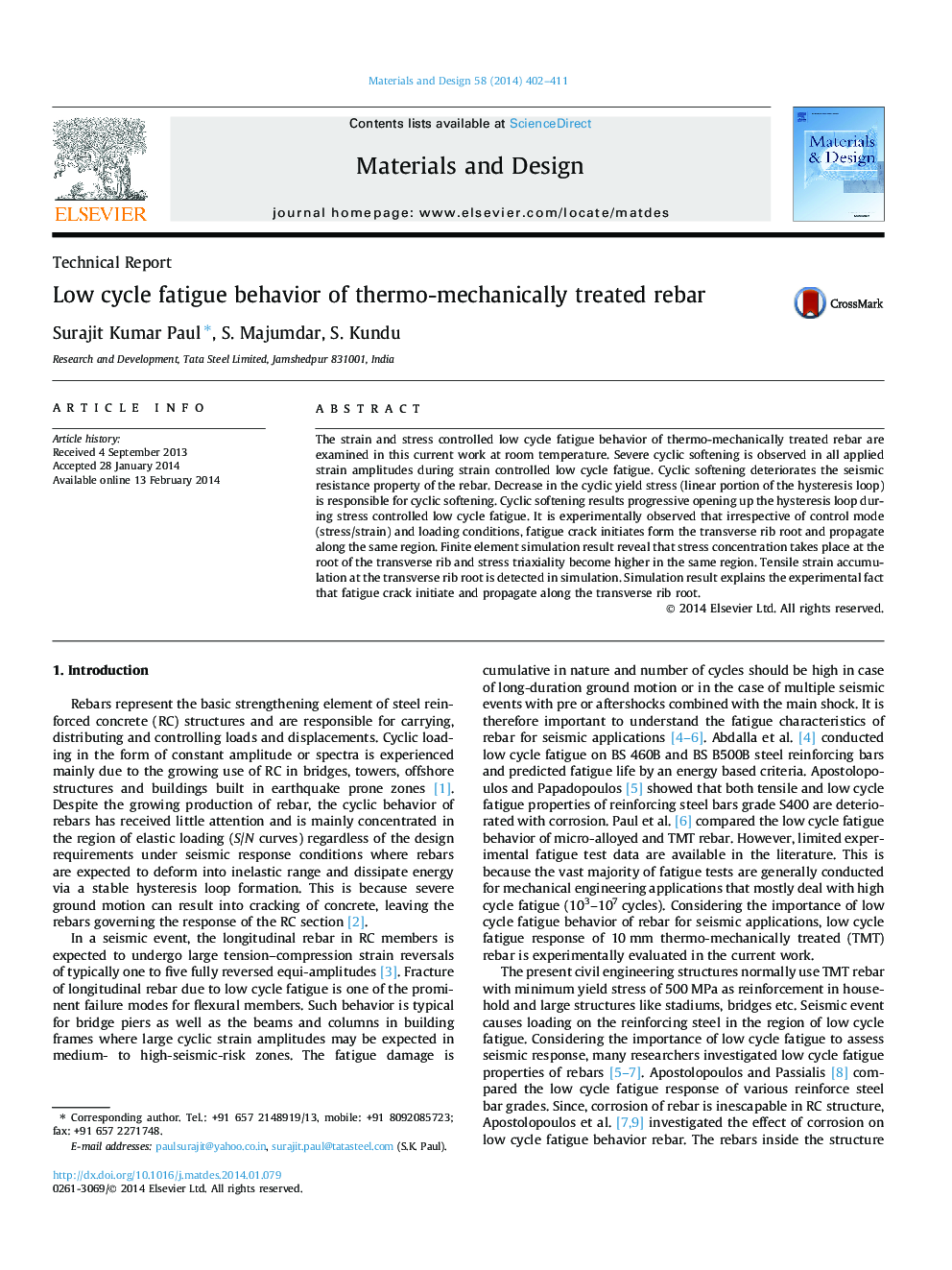| Article ID | Journal | Published Year | Pages | File Type |
|---|---|---|---|---|
| 829293 | Materials & Design (1980-2015) | 2014 | 10 Pages |
•Strain and stress controlled low cycle fatigue behavior of TMT rebar.•Decrease in the cyclic yield stress is responsible for cyclic softening of TMT rebar.•Fatigue crack initiates form the transverse rib root and propagate along the same region.•Stress concentration and high stress triaxiality observed at the root of the transverse rib.
The strain and stress controlled low cycle fatigue behavior of thermo-mechanically treated rebar are examined in this current work at room temperature. Severe cyclic softening is observed in all applied strain amplitudes during strain controlled low cycle fatigue. Cyclic softening deteriorates the seismic resistance property of the rebar. Decrease in the cyclic yield stress (linear portion of the hysteresis loop) is responsible for cyclic softening. Cyclic softening results progressive opening up the hysteresis loop during stress controlled low cycle fatigue. It is experimentally observed that irrespective of control mode (stress/strain) and loading conditions, fatigue crack initiates form the transverse rib root and propagate along the same region. Finite element simulation result reveal that stress concentration takes place at the root of the transverse rib and stress triaxiality become higher in the same region. Tensile strain accumulation at the transverse rib root is detected in simulation. Simulation result explains the experimental fact that fatigue crack initiate and propagate along the transverse rib root.
